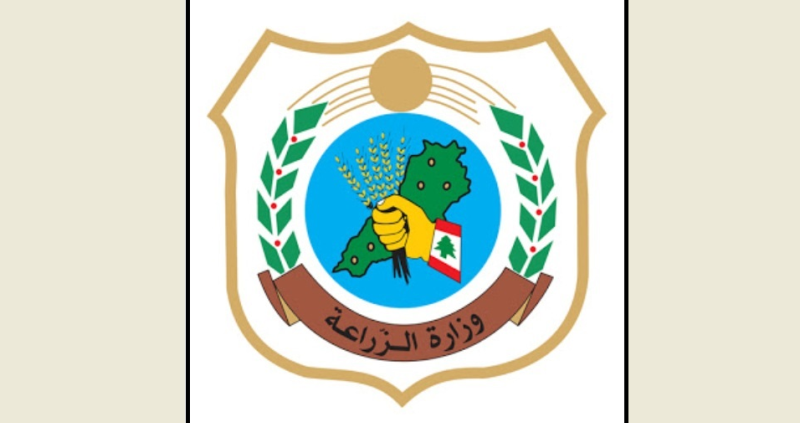
The Lebanese Ministry of Agriculture published on Sunday a detailed report of its achievements during the first 100 days of Minister Nizar Hani’s mandate. The document highlights a strategic approach based on science, institutional cooperation and the restoration of confidence in the agricultural sector’s role within the national economy.
A Strategic Vision in Six Pillars
The ministry structured its work around six complementary strategic pillars aimed at deeply transforming the agricultural sector.
The first pillar focuses on land rehabilitation, providing technical support and compensation to farmers, especially those in conflict-affected regions.
The second pillar targets research, agricultural extension and food security through strengthening laboratories and implementing more rigorous quality control systems for products.
The third pillar is centered on export, agricultural diplomacy and food security, with the goal of opening new markets, revising existing trade agreements, better regulating imports and protecting local production.
The fourth pillar emphasizes sustainable agriculture by supporting plant, animal and maritime sectors while integrating climate change challenges and biodiversity preservation.
The fifth pillar aims to protect natural resources through adopting legislation regulating forest, pasture and fisheries management, as well as combating environmental violations.
Finally, the sixth pillar focuses on infrastructure and innovation by developing value chains, integrating agricultural technologies and improving rural living conditions.
External Financing and Investments
The ministry indicates it has mobilized more than $280 million in external funding; $80 million are direct grants for projects linked to the ministry (research, green project, cooperatives), and $200 million have been allocated as loans through the Gate program for agricultural development, presented as a vote of confidence by the international community in the ministry’s new direction.
Agricultural Extension and Awareness
Significant efforts have been made in agricultural support: 77 field sessions benefiting over 2,750 farmers, 15 regional visits to agricultural zones, as well as 12 televised episodes and 12 digital awareness videos.
The educational content has been unified and modernized. A youth volunteer campaign led to the planting of 50,000 olive trees in the South. A partnership with the Ezraa platform also enabled the launch of a mobile app dedicated to agriculture.
Institutional Reforms
The ministry reactivated key bodies such as the board of directors of the research department and the implementation committee of the green project, and established the cannabis regulatory authority.
It also created specialized committees to organize several sectors: agricultural inputs, beekeeping, wine and arak, laboratories, olive oil, poultry, dairy and solidarity funds.
Support for Production and Market Opening
The ministry promoted contract farming, strengthened the link between production and marketing, revived cooperation with neighboring countries and activated partnerships with municipalities and civil society.
It also encouraged producers to register in the national agricultural registry to regulate the sector and ensure equitable distribution of aid.
Environmental Governance
Firm measures have been taken to protect the environment, including declaring a state of emergency in the forestry sector, a national campaign against stray dogs and rabies, security coordination to protect fisheries resources, and sanctions imposed for violations affecting national production, exceeding LBP 55 billion.
Agricultural Diplomacy and National Coordination
The ministry hosted several diplomatic delegations and international organizations, signed cooperation agreements and conducted joint field visits to set development priorities.
It also strengthened collaboration with other Lebanese ministries in a logic of policy integration and sustainable rural development.
National Events and Digital Transformation
A major agricultural congress was held under the patronage of the President of the Republic, in collaboration with the Economic and Social Council. The event laid the foundation for internal restructuring of the ministry focused on digital transformation and good governance.
At the same time, the National Agriculture Days brought together the public and officials to promote local products.
Towards a Long-Term Strategy
The ministry is currently working on the national agricultural strategy for 2026-2035, as well as an investment memorandum to boost the sector’s attractiveness.



Comments